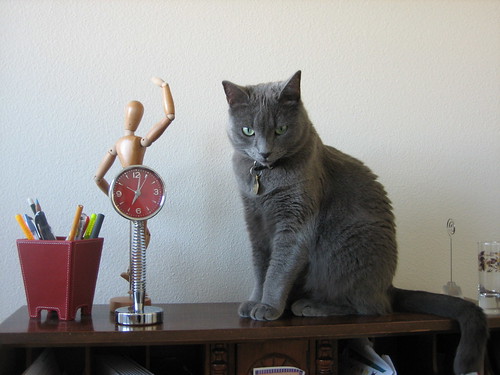I was just reorganizing my writing folder (on Puck, my laptop) to reflect the theory that I’m now an Author, not a writing student (a thin proposition, I know). Putting my stories together regardless of whether I wrote them to show to an advisor or not, et cetera. I thought as long as they were all together, I might as well color-code the folders to reflect the submissions-status of each story, using the color codes I do in my submissions spreadsheet.
Yes, this is really Felicity. I do in fact have an organized bone in my body. Possibly three, to make up an entire finger. Anyway, I color-coded away and discovered that of the 15 stories in the folder, the three that are out in editors’ mail bins right now (blue) are in letters A through F, whereas the eight that are ready to go out but are NOT out (green) are clustered at the end of the alphabet, mostly around ‘S’. Does my subconscious mind discriminate by letter?
Maybe it’s wise to do so, because the only published story I have starts with ‘B’….
Update, August 7, 2008: My other accepted story starts with ‘A’. Hmm.



